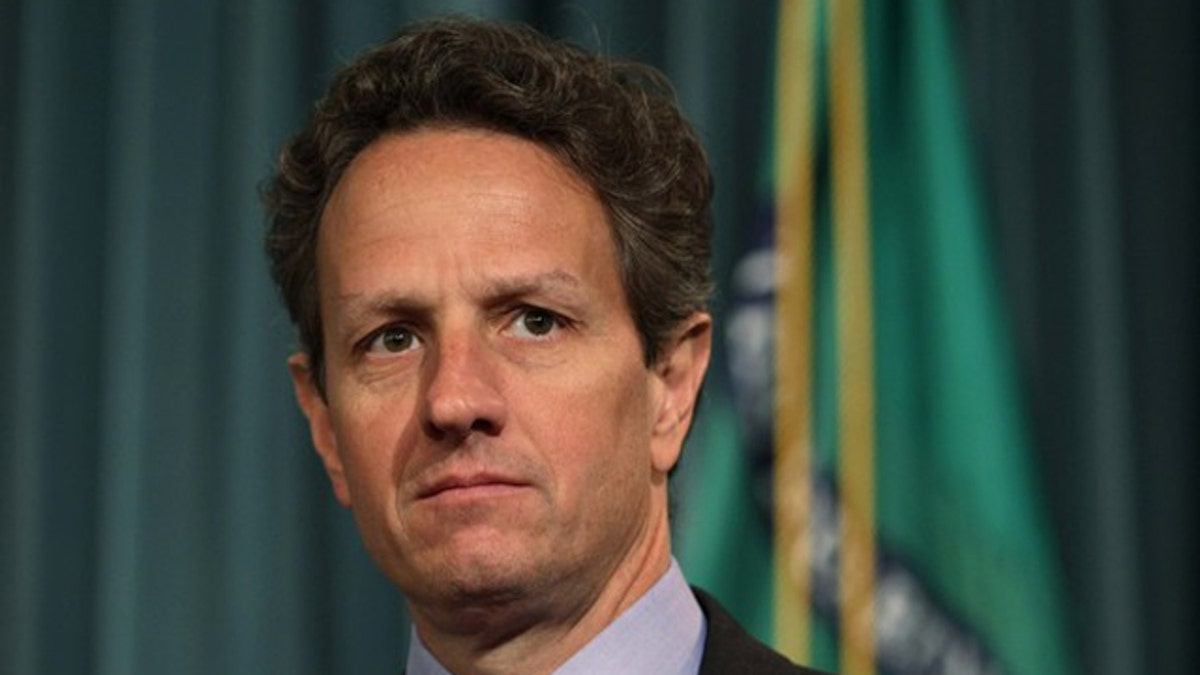
Treasury Secretary Timothy Geithner is pictured at a briefing at the Treasury Department in Washington May 13. (Reuters)
The federal government will not need to shut down and could find ways to pay its obligations even if the debt ceiling is reached before a law is passed to raise it, congressional researchers told lawmakers at a recent briefing.
The Congressional Research Service briefing and two reports provided by Congress' investigative arm suggest the government could potentially limp along after Aug. 2, the date by which Treasury Secretary Tim Geithner says Washington has to raise the debt ceiling or face the possibility of default.
One CRS report outlined several options for paying the bills should the Treasury Department run out of ways to avoid crossing the $14.3 trillion threshold. The department currently is tapping federal retirement funds and using other maneuvers to keep U.S. finances in the safe zone, but those tactics are only short term. CRS suggested that if Treasury exhausts those alternatives, the federal government could buy more time by making smart decisions about which bills to pay first.
Without predicting what would happen, the report said the government would have to decide whether to pay its bills in the order they're received or prioritize them. Though Treasury officials say the latter is legally impossible, CRS cited a 1985 government report stating Treasury would be in its right to pay bills "in any order it finds will best serve the interests of the United States." Or, CRS said, the White House budget office could step in to change the course of spending.
These options could buy lawmakers a bit more time as they try to hammer out a budget deal that makes enough spending cuts and entitlement reforms so as to convince reluctant lawmakers to support another increase in the debt ceiling. Lawmakers and White House officials were meeting again Thursday to discuss a possible agreement.
However, the report makes clear that the federal government will eventually have to lift the cap so long as there's a deficit. And there's a big one -- estimated at $1.4 trillion for fiscal 2011.
"If the budget continues to be in deficit and policy makers wish to avoid a default on
federal obligations, such methods cannot avoid the eventual necessity of raising the debt limit," the report said.
To put the challenge in context, CRS said the government would probably have to assume $738 billion in debt above the current limit to finance operations for the rest of the fiscal year. If Washington wanted to cover this gap with spending cuts, it would have to eliminate all discretionary spending for the rest of the year, and then some.
Another option would be to cut nearly 70 percent from mandatory programs like Medicare and Social Security. Or Washington could raise taxes by two-thirds.
Regardless, CRS warned that cutting government spending to avert the cap would have "significant economic effects" and could lead to higher government interest costs if creditors lose faith in the government's fiscal standing.












































